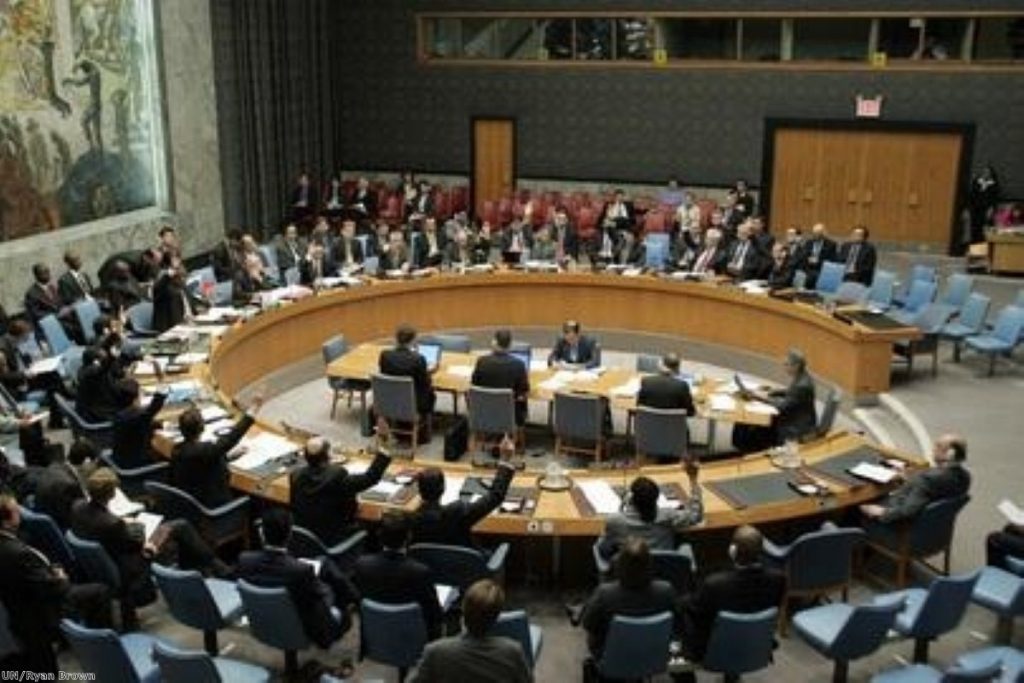‘Perilous and frightening’: 170 British oil workers trapped in Libya
William Hague has insisted the government is doing all it can to assist Britons still in Libya, after criticism from Labour.
The foreign secretary was forced to issue another statement outlining the Foreign Office’s steps to help the 300-odd Britons still in the country this afternoon.
“All of us are conscious that the situation in Libya is very different from that we faced in Tunisia or Egypt over the last few weeks,” Mr Hague said.


“In those countries there were large protests but chiefly in the urban areas, in Libya what is happening is civil strife; a country split geographically in two, split between government and people and with a widespread breakdown of law and order.”
The schism has seen much of western Libya, as well as the capital Tripoli, fall out of Col Gaddafi’s control and into the hands of protesters.
Shadow foreign secretary Douglas Alexander accused the Foreign Office of not having been quick enough to provide assistance.
“William Hague should explain why the government appears to have been slow off the mark when other countries have already repatriated a large number of their citizens.”
Around 170 British oil workers are stranded in the Libyan desert at isolated camps scattered, Mr Hague said, “over a large distance”.
“They’re dependent for food or water on supplies from Libyan cities that have been severely disrupted by the violence and unrest and some we know have been subjected to attacks and to looting,” he added.
“They are in a perilous and frightening situation.”
The Foreign Office is attempting to get into contact with them and is urging the workers to contact them on 44 207 008 000.
Earlier today British officials secured permission from the Libyan government to land a charter flight at Tripoli airport allowing British civilians to leave the country.
The flight left Gatwick airport at 12:30 GMT and will land at Tripoli airport later this afternoon, the Foreign Office said. A second flight will depart this evening and a third will leave tomorrow if needed.
“Over the past week hundreds of British nationals have been able to leave Libya on scheduled flights, many of them assisted by the Foreign Office,” foreign secretary William Hague said in a statement issued this afternoon.
“However there are, we think, at least 300 remaining in the Tripoli area and some expected scheduled flights have not materialised so we decided to send these charter flights as rapidly as possible.”
A consular team from the embassy is already at the airport and two specialist teams flew out on the first charter flight. Supplies of food and water are being brought to British nationals at the airport.
Mr Alexander added: “The hundreds of British nationals stranded amidst the violence in Libya deserve to have a senior minister in Whitehall taking a grip of the government’s response to this fast changing situation.
“The government should be convening its emergency committee – Cobra- to co-ordinate the actions of all the relevant departments that may have a role to play in responding to this very serious situation.”
Cameron wants UN resolution on Libya
This morning prime minister David Cameron said Britain will up diplomatic pressure on Col Gaddafi to step down by calling for a full UN resolution on the country.
The prime minister told an audience of students in Qatar that the UK wanted to see the UN “go further” in order to send a message to Tripoli.
His comments followed a closed meeting of the security council in New York yesterday which saw council members condemn the violence and use of force against civilians.
“Would I like this to go further and have a full UN security council resolution? Yes, I think that would be good,” Mr Cameron said.
“Do I think we should send a very clear warning to Col Gaddafi and the Libyan armed forces that what they’re doing is wrong and against the law? Yes, I think that we should.
“But it would be better if the world would move ahead as one and this could be done through the UN security council. I hope we’ll be making further steps over the coming days to make that clear.”
UN secretary-general Ban Ki-moon had a 40-minute phone conversation with Col Gaddafi yesterday in which he urged the Libyan leader to order the authorities to stop shooting at demonstrators from war planes and helicopters.
That did not stop Col Gaddafi issuing a defiant diatribe against western leaders, or “cockroaches” as he called them, in which he vowed not to surrender power without a fight.
Mr Cameron was also asked about his recent speech to the Munich security conference, in which he claimed that multiculturalism in Britain had failed.
A student told him: “You’re causing more divide within the British communities and you’re singling out the minorities within the British community – and with that, singling out the Muslims. Where are the spirits of tolerance, freedom?”
Mr Cameron replied: “What I’m attacking is not the idea of a multiracial society – Britain has an extremely successful multiracial society.
“What I’m attacking is what I call state multiculturalism – that you keep people separately.”
He said the notion that the government should be “super-tolerant and say everyone exists separately” was what concerned him.
Mr Cameron added: “We should ask people to integrate, to become part of society.”









